
The ASEAN Council of Teachers plus Korea (ACT+1) stands as a vital regional alliance, uniting teacher organizations from across Southeast Asia with a shared vision of strengthening education, advancing the teaching profession, and promoting the collective welfare of educators. Established to foster collaboration, ACT+1 serves as a powerful voice for teachers, advocating for policies that enhance educational quality and address the diverse challenges facing education systems within the ASEAN region. Through its initiatives, ACT+1 promotes professional growth, cross-cultural exchanges, and innovative teaching practices, recognizing the critical role educators play in shaping the future of their respective nations.
The Philippine Public School Teachers Association (PPSTA), as a proud member of the ASEAN Council of Teachers plus 1, plays a key role in this collective effort. Its affiliation with ACT+1 positions PPSTA at the forefront of regional educational discourse, allowing it to actively contribute to shaping policies and strategies that benefit not only Filipino teachers but also educators throughout Southeast Asia. By participating in ACT+1, PPSTA reinforces its commitment to championing the rights and professional development of teachers while fostering a spirit of unity and cooperation across ASEAN. This partnership empowers PPSTA to bring regional insights to local challenges, ensuring that the concerns of Filipino teachers are addressed within a broader, globally-connected context.
The 38th ASEAN Council of Teachers + Korea (ACT+1) Convention
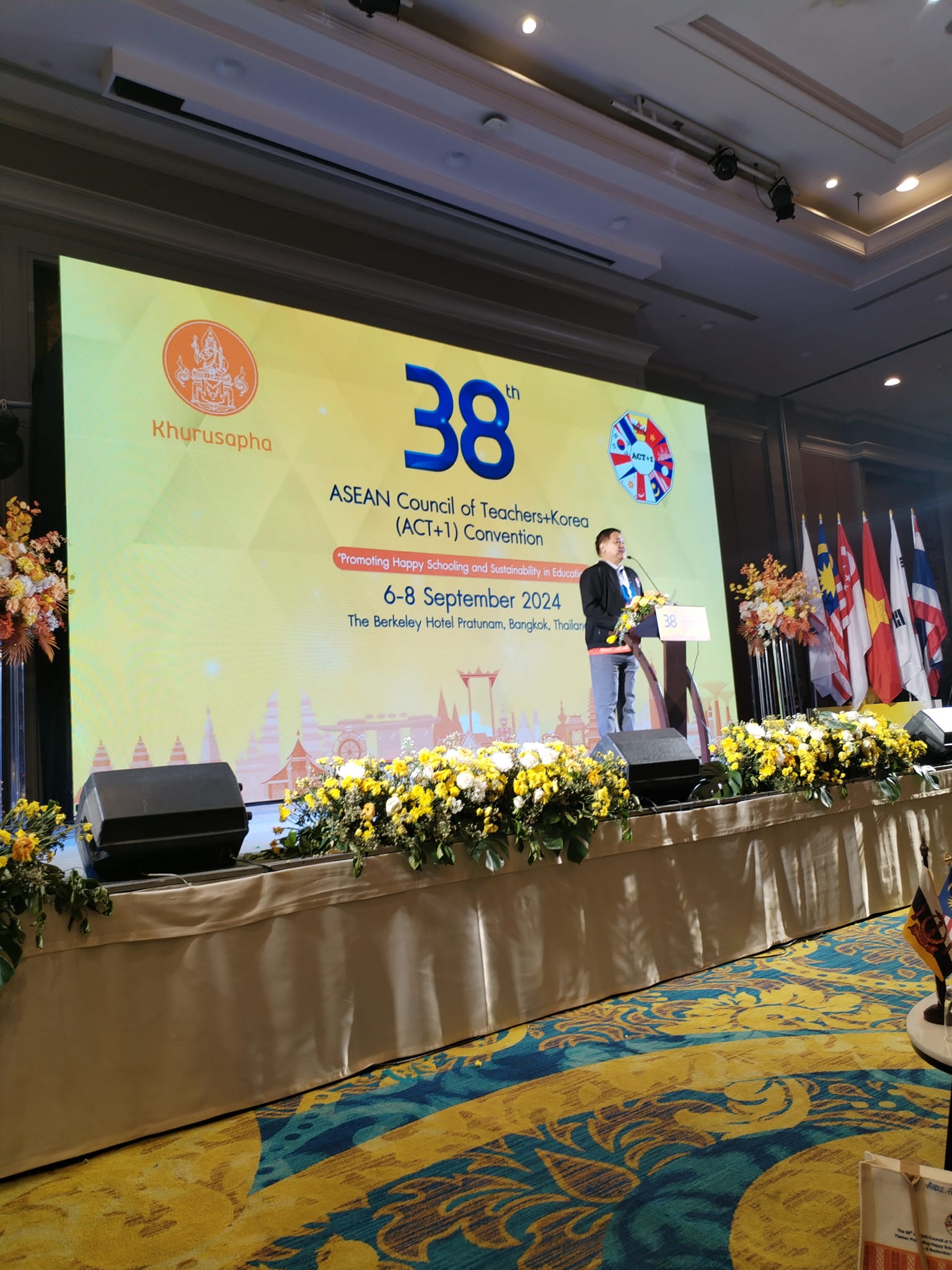
GILBERT T. SADSAD, CESO III
Department of Education
Director IV, Region V
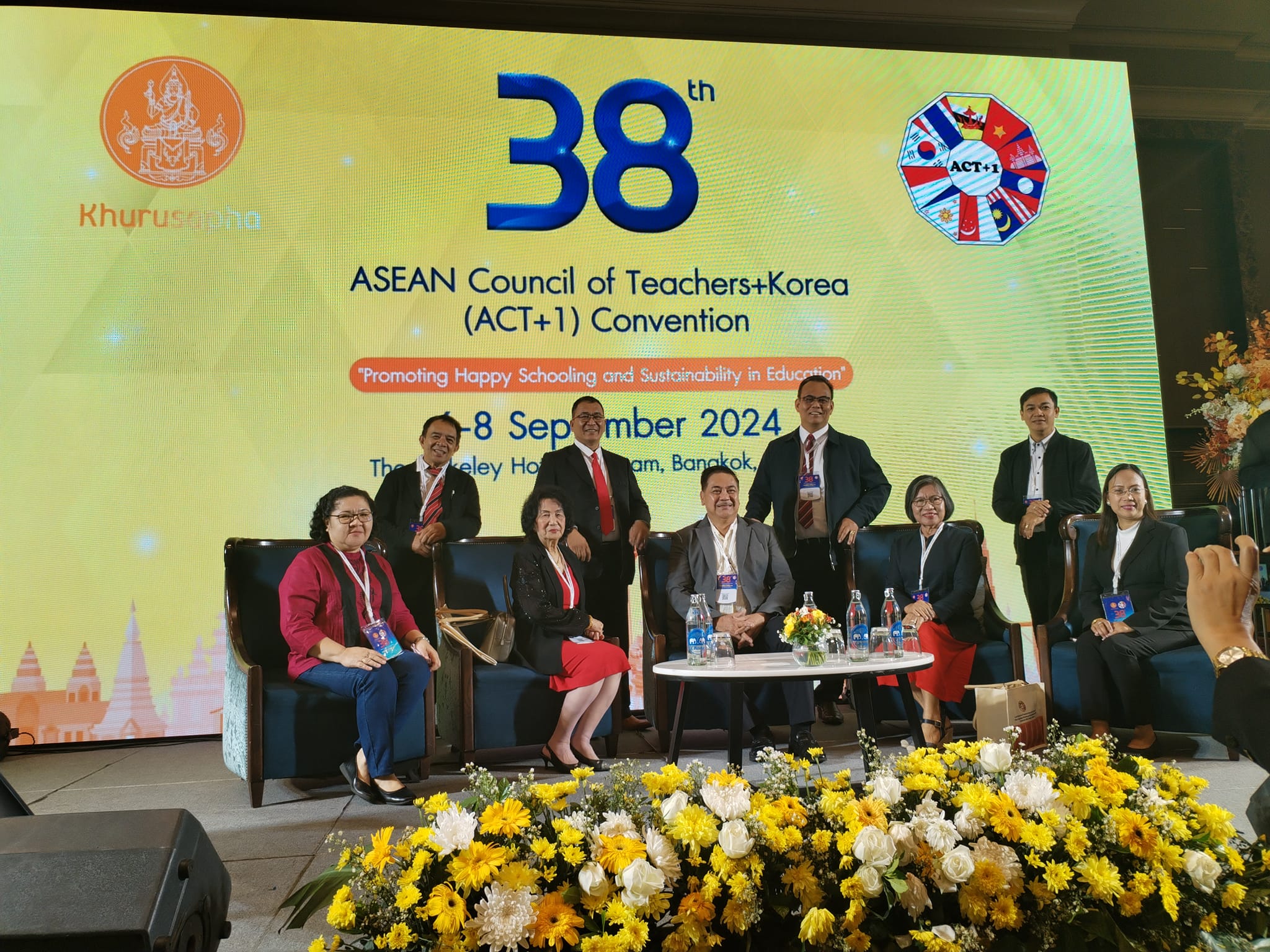
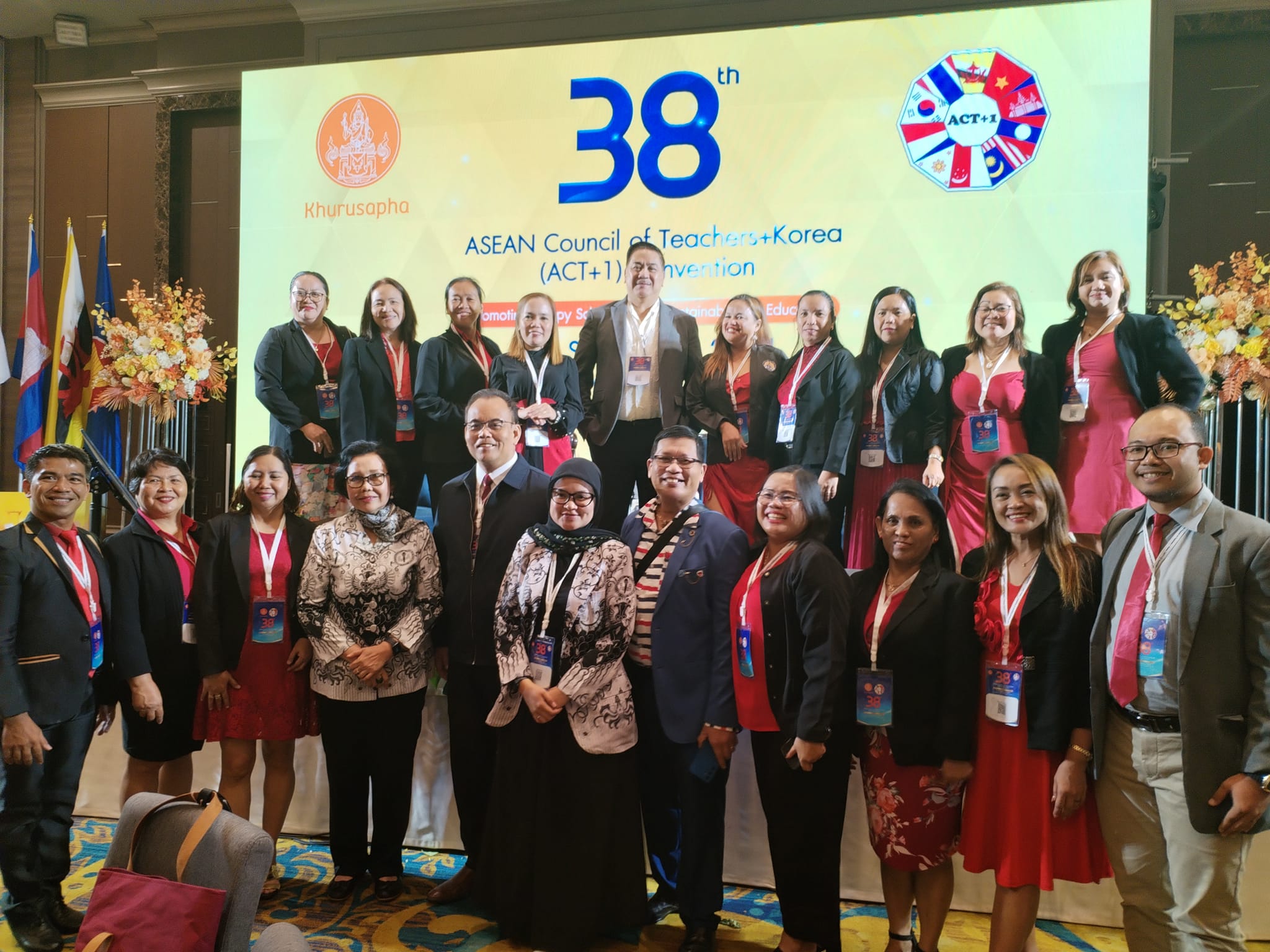
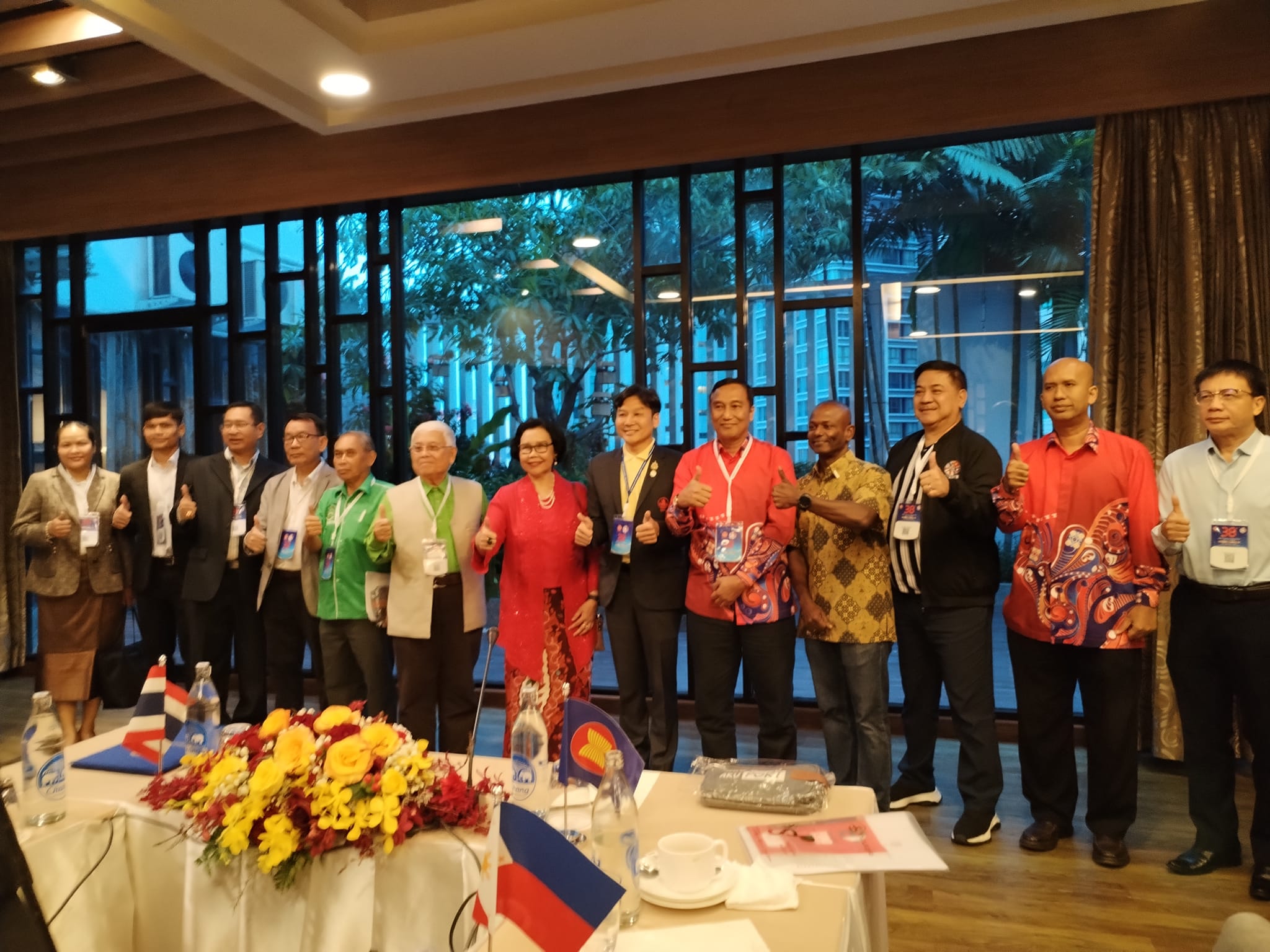
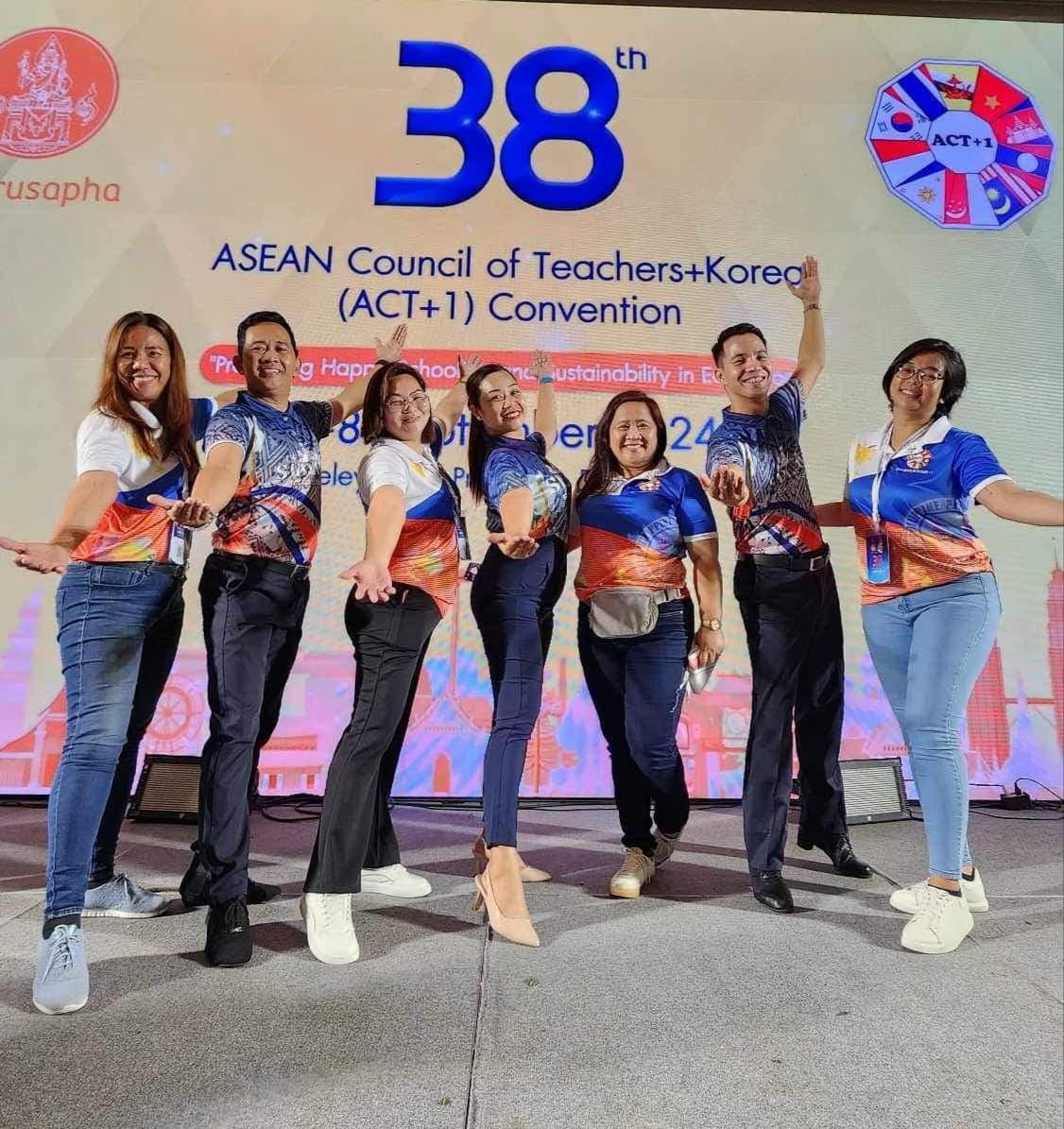
Understanding the Role of Public and Private Partnership (PPP) in Creating Safe Schools and Sustaining Education in the Philippines
In the Philippines, the Constitution mandates the protection and promotion of the right of all Filipinos to accessible and quality education. Cognizant of this, the Department of Education is given the responsibility to provide for the establishment and maintenance of a complete, adequate, and integrated system of basic education that is relevant to the goals of national development.
But DepEd in the Philippines does not work alone. We are actively collaborating with stakeholders to enable us to get everyone involved and work collectively to make joint decisions, achieve common goals, and address shared challenges. This partnership is encouraged worldwide, with the World Bank stressing that the main rationale for developing public-private partnerships (PPPs) in education is to maximize the potential for expanding equitable access to schooling and for improving education outcomes, especially for marginalized groups.
The concept of a PPP recognizes the existence of alternative options for providing education services besides public finance and public delivery. Many governments, international organizations, and other key education stakeholders consider that, by partnering with the private sector, countries can expand their education systems in a more efficient, flexible and effective way (Robertson et al., 2012). This is the reason why in the Philippines, we strengthen our stakeholders’ collaboration to leverage each other’s unique strengths and achieve mutual goals that will benefit our learners.
This public-private partnership in my country is stipulated in Republic Act 8525, otherwise known as the Adopt-A-School Program, in order to build and sustain a mutual connection between DepEd and its partners. This program provides a venue for the strong and dynamic private sectors to actively participate in creating safe schools and sustaining quality education among Filipino learners. Specifically, the Adopt-A-School Program allows private entities to assist public schools, whether elementary, secondary, or tertiary, preferably those that are located in the poorest provinces in the Philippines, in the following areas: staff and faculty development for training and further education; construction of facilities; upgrading of existing facilities; provision of books; publications and other instructional materials, and modernization of instructional technologies.
The Adopt-A-School Program Act is further strengthened through the issuance of DepEd Order No. 2 s. 2013 that expands the assistance that the private sector can provide to public schools. The partners’ support packages may include infrastructure, physical facilities, furniture and real state property; training and skills development; learning support; reading materials; computer and science laboratories; health and nutrition packages, and assistive learning devices for students with special needs.
This public-private partnership allows for the construction and maintenance of school infrastructure, including buildings, sanitation facilities, and access roads; and also brings innovative solutions and technologies to improve educational outcomes and safety measures in schools. With collaboration, DepEd partners also facilitate training programs for teachers, administrators, and staff on safety protocols, disaster preparedness, and effective educational practices; and they are also tapped to mobilize additional resources through investments, donations, or corporate social responsibility initiatives; PPPs encourage community involvement in school governance and safety initiatives.
One of the tangible outcomes of the Adopt-A-School Program in the Philippines is Brigada Eskwela. It is a nationwide campaign for volunteers’ support to basic education and is held
every year before the opening of classes, which promotes good school and community partnership. This is a community engagement strategy that involves stakeholders such as parents, private institutions, community organizations, and non-government organizations in the maintenance and preparation of public schools before classes begin. Through volunteer efforts and community participation, schools are cleaned, renovated, and made safe and conducive to learning. In School Year 2023-2024, for example, more than six billion was generated by the Department of Education for Brigada Eskwela, Adopt-A-School Program and other partnership activities.
The Department of Education benefits from this public and private collaboration. From school infrastructure to technology and multi-media support, furniture and appliances; wellness, health and nutrition; financial support and subsidy; school supplies and uniforms; teaching and learning aids and devices; training and skills development; and even in the last mile efforts, our partners have generously pooled their resources together to support schools all over the country.
Let me present our country’s educational scenario when we were all assailed by the COVID-19 pandemic in 2020, and how our efforts for learning recovery is now being supported by our external partners.
Compared to East and Southeast Asian countries, the Philippines had one of the longest school closures, going from March 2020 to October 2020 without formal classes. It eventually implemented distance learning in all schools and only returned to full face-to-face classes on November 2, 2022. About 27 million students have been affected by partial or full school closures. Nine out of ten children now fall below the minimum reading proficiency level.
In my own region, Region V, we were particularly concerned about the reading ability of our early-grade learners due to long school closures and the implementation of distance learning. To determine the actual number of our learners who have not acquired the foundational literacy
skills, we conducted a literacy assessment in 2022, the Comprehensive Rapid Literacy Assessment which we developed with the support of ABC+ Project, also an education stakeholder.
The results revealed that more than half of our early-grade learners could not read or they were Full Refreshers. Some could read but still with reading difficulties. This left only a measly 27 percent of Grades 1 to 3 learners who could read in 2022.
This situation prompted us to implement a Learning Recovery Program, through Project RAISE, or Recovering for Academic Achievement by Improving Instruction through Sustainable Evidence-Based Learning Programs. The main focus of the Learning Recovery Program is the implementation of the 8-Week Learning Recovery Curriculum for three years. By 2025, our Region visualizes a classroom where every reader is a reader and numerate.
We are currently implementing this cohesive and needs-based reading program for three school years. We want to make sure that we are promoting early-grade learners who have fully recovered from learning loss and are able to acquire critical foundational literacy skills that will help them learn their lessons well in school because they are able to comprehend.
In the implementation of Region V’s Learning Recovery Program, education stakeholders actively support the Organization, the primary of which is ABC+: Advancing Basic Education in the Philippines who assisted in developing lesson maps, worksheets, and assessment tools in the 8-Week Learning Recovery Curriculum. It also spearheaded professional development activities for teachers and instructional leaders to improve instructional delivery for early-grade learners.
Also critical in the implementation of our Region’s Learning Recovery Program is the availability and accessibility of learning resource materials and learning resource kits. ABC+ Project also helped us in the development of appropriate and high-quality early-grade learning resources;
and they also donated various manipulatives that makes learning in the early grades more active, collaborative and exploratory.
Children International-Bicol further complements Region V’s learning recovery efforts through reproduction and distribution of the worksheets used in the 8-Week Learning Recovery Curriculum. Through a memorandum of agreement, Children International and our organization launched the EducSupport Academic Reinforcement and Enrichment Program and WeLearn Life Skills Program in 2023. It also assists the communities in selected municipalities in the Region. Children International-Bicol trains child development workers along the foundations of early childhood education, developmentally appropriate practices in teaching and handling children, play-based teaching and learning, and creative experiences for young children. These efforts directly benefit the early-grade learners who need intensified instruction to acquire foundational skills in literacy and numeracy.
Food for the Hungry Philippines, another education partner of Region V, also supports our regional initiative through their Reading and Numeracy Remediation Project which is implemented in Camarines Norte, a division in our region. FH trains learning support aides to carry out reading and numeracy remedial sessions among early-grade learners, and their involvement in assisting children learn how to read and compute increases the chance of learners to recover from learning loss.
Another active partner of DepEd Region V is GABAY of Resources for the Blind, who has assisted us in putting up an Inclusive Learning Resource Center in Bicol, along with providing equipment, assistive devices, and learning resources for learners with disabilities. It has also developed an assessment tool for our learners with disabilities which we will adopt in order to better understand the capabilities of our learners and address their special needs, specifically those who are in early grades and may need additional support and accommodations.
The United States Agency for International Development (USAID) through the ABC+: Advancing Basic Education in the Philippines Project, in partnership with The Asia Foundation (TAF) and Philippine Business for Social Progress (PBSP), also assisted in gathering more than 70 business and industry leaders, as well as corporate foundations, to rally support for early-grade learning in Region V. The Industry Leaders’ Conference was held last March 8, 2023, where the Regional Office and the 13 schools division offices interacted with education stakeholders to explore new partnerships and engagement to support Region V’s learning recovery efforts. The gathering also determined potential private sector interventions to complement local government efforts in helping learning outcomes of early-grade learners in the region.
The need to actively engage and involve various stakeholders in strengthening Region V’s learning recovery program to address learning loss among the early-grade learners in Region V, specifically along their acquisition of foundational literacy and numeracy skills, also paved the way to the conceptualization of the Project 6B.
Project 6B: Bawat Batang Bicolano Bihasang Bumasa at Bumilang (every Bicolano learner is a reader and numerate) promotes a multistakeholder approach to the whole program management cycle from planning, implementation, monitoring and evaluation, spotlighting the shared accountability and responsibility for education. It is designed to strengthen school and community coordination and collaboration, sharing of resources and capacities, thereby improving the literacy and numeracy of the learners in the basic education.
The 6B Program has resulted to a big number of volunteers who signified to join in the Program, totaling to 21,513 who took on the roles as tutors and volunteer teaching assistants. DepEd Bicol volunteers are teacher applicants, education graduates, community literacy advocates, parent leaders, NGAs, and other institutions like the Bureau of Fire Protection and the Philippine National Police (PNP) and Local Government Units.
Currently, DepEd Region V initiates ongoing capacity building activities with the volunteer teachers from partner Teacher Education Institutions (TEIs) and will start monitoring of the school implementation. To date, there are already 54 partner Teacher Education Institutions (TEIs) which signed a Memorandum of Agreement (MOA) with DepEd Region V. The support and endorsement of CHED Region V was considered a big factor in the participation of the TEIs. Project 6 B has also generated support from the Regional Development Council who endorsed the said program to local government units in Region V for the deployment of additional volunteer teachers and teaching assistants.
And because our schools are situated inside communities, we also recognize that to sustain the support in education, we need to ensure the support of the local government units. Region V advocates for the Education Sector Mechanism initiated by RTI International in partnership with The Asia Foundation, which invites every stakeholder to actively engage and invest in early grade education within their community. A local leader of Tabaco City, Mayor Krisel Lagman, is an early-grade learning champion, and she passionately advocates collaborative approach to enhance early-grade education. She is one of our strong partners in Region V’s learning recovery efforts.
In addition, the local government units remain our primary partners in the promotion of a positive learning environment for our learners the enactment of ordinances and resolutions by the local government remain our primary partner. To illustrate, 99 resolutions and ordinances of provincial and municipal offices have been passed to support the implementation of Brigada Eskwela and Project 6B in Region V. Through these ordinances, resolutions and fund appropriation, our schools in the different provinces and municipalities are assured of the sustained support of the local government units.
Overall, public and private partnership leverages the strengths of both public and private sectors to create safe and sustainable schools in our locality. By combining resources, expertise, and
innovation, these partnerships can effectively address the complex challenges facing educational institutions and ensure a conducive environment for teaching and learning.
PARTNERSHIP
The Philippine Public School Teachers Association (PPSTA) is affiliated with the ASEAN Council of Teachers (ACT), reflecting its commitment to fostering collaboration and unity among educators across Southeast Asia. This affiliation allows PPSTA to actively participate in regional initiatives, share best practices, and advocate for the rights and professional development of teachers within the ASEAN community. Through its membership, PPSTA contributes to strengthening educational systems and promoting the welfare of educators in the region.


